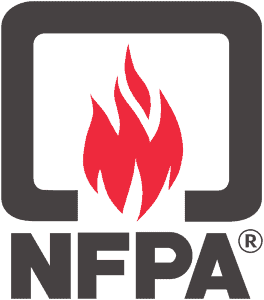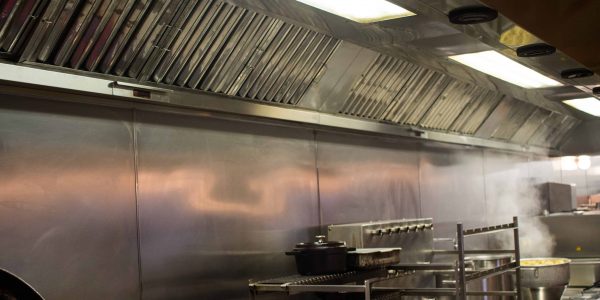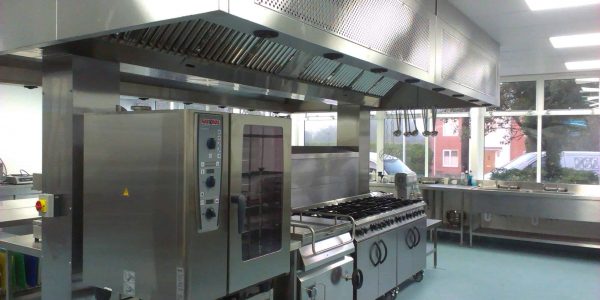As a leading designer and UK manufacturer of commercial kitchen ventilation systems, we’re here to break down what NFPA 96 compliance means and why it’s essential for your business.
What is NFPA 96?
NFPA 96, or the National Fire Protection Association’s Standard for Ventilation Control and Fire Protection of Commercial Cooking Operations, sets the minimum requirements for the design, installation, operation, inspection, and maintenance of all public and private cooking operations. This standard aims to reduce the potential fire hazards associated with cooking equipment and kitchen operations.

What Types of Commercial Kitchens Does NFPA 96 Apply to?
NFPA 96 applies to all commercial kitchens that use open flame cooking equipment and have a hood and duct system to remove smoke and heat. This includes restaurants, cafeterias, hotel kitchens, food trucks, hospitals, and schools – essentially any place where cooking generates grease laden vapours.
How to Get NFPA 96 Certified?
Looking to get NFPA 96 certified? Here’s a step by step guide on how to achieve compliance.
Step 1: Understand the Scope of NFPA 96
The first step is to familiarise yourself with the NFPA 96 guidelines, which detail everything from hood installation to ductwork and exhaust systems.
Step 2: Design and Install Proper Ventilation
Hood Installation: Install hoods over all commercial cooking equipment to contain heat, smoke, and grease vapours.
Ductwork: Ensure that ducts are designed and installed to effectively capture and exhaust vapours away from the kitchen.
Exhaust System: Use exhaust fans that are appropriately sized and maintained to handle the volume of air required.

Step 3: Use Approved Equipment
All cooking equipment must meet specific safety standards and should be listed and approved for use. Ensure that all appliances under hoods are approved for that particular type of ventilation system.
Step 4: Install Fire Suppression Systems
Automatic Fire Suppression: Install an automatic fire suppression system within the cooking area. These systems are designed to detect fires and automatically dispense extinguishing agents.
Portable Fire Extinguishers: Place Class K fire extinguishers nearby for immediate response to a fire incident.

Step 5: Conduct Regular Cleaning and Maintenance
Grease Removal: Clean grease from all parts of the hood, filters, ducts, and fans regularly to prevent grease build up, which is a common fire hazard.
System Checks: Regularly inspect the ventilation and fire suppression systems to ensure they are functioning correctly. Replace filters and repair any parts as necessary.
Step 6: Train Staff on Safety Procedures
Train all kitchen staff on proper cooking techniques, the use of fire suppression equipment, and emergency procedures. Regular drills and training updates can help in maintaining safety standards.
Step 7: Schedule Professional Inspections
Finally, have your kitchen inspected regularly by a qualified professional who can certify NFPA 96 compliance. These inspectors can identify issues that may not be apparent to untrained eyes and suggest corrective measures.
Consequences of Non-Compliance
Non-compliance with NFPA 96 can lead to severe consequences, including increased risk of kitchen fires, hefty fines, and even the shutdown of your business operations. It’s not just about meeting legal requirements; it’s about ensuring the safety of your staff and customers.
Approximately 61% of restaurant fires originate from the kitchen, and the majority of these are linked to improper grease management and ventilation issues.
How Can Corsair Engineering Help?
Our expert team can design and manufacture commercial kitchen ventilation systems that meet and exceed NFPA 96 standards, ensuring your kitchen is safe, efficient, and compliant.
We provide bespoke solutions that address the specific needs of your business, helping you navigate the complexities of compliance with ease. Get in touch with us on 01295 267021 for more information or simply fill out the contact form below. We’ll be happy to help.
